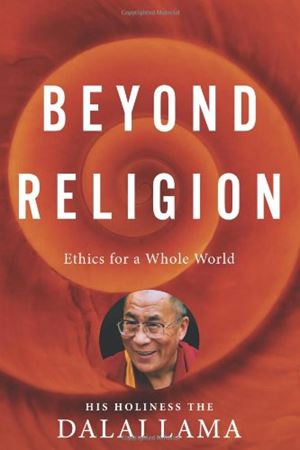
I am an old man now. I was born in 1935 in a small village in northeastern Tibet. For reasons beyond my control, I have lived most of my adult life as a stateless refugee in India, which has been my second home for over fifty years. I often joke that I am India’s longest-staying guest. In common with other people of my age, I have witnessed many of the dramatic events that have shaped the world we live in. Since the late 1960s, I have also traveled a great deal, and have had the honor to meet people from many different backgrounds: not just presidents and prime ministers, kings and queens, and leaders from all the world’s great religious traditions, but also a great number of ordinary people from all walks of life.
Looking back over the past decades, I find many reasons to rejoice. Through advances in medical science, deadly diseases have been eradicated. Millions of people have been lifted from poverty and have gained access to modern education and health care. We have a universal declaration of human rights, and awareness of the importance of such rights has grown tremendously. As a result, the ideals of freedom and democracy have spread around the world, and there is increasing recognition of the oneness of humanity. There is also growing awareness of the importance of a healthy environment. In very many ways, the last half-century or so has been one of progress and positive change.
At the same time, despite tremendous advances in so many fields, there is still great suffering, and humanity continues to face enormous difficulties and problems. While in the more affluent parts of the world people enjoy lifestyles of high consumption, there remain countless millions whose basic needs are not met. With the end of the Cold War, the threat of global nuclear destruction has receded, but many continue to endure the sufferings and tragedy of armed conflict. In many areas, too, people are having to deal with environmental problems and, with these, threats to their livelihood and worse. At the same time, many others are struggling to get by in the face of inequality, corruption, and injustice.
These problems are not limited to the developing world. In the richer countries, too, there are many difficulties, including widespread social problems: alcoholism, drug abuse, domestic violence, family breakdown. People are worried about their children, about their education and what the world holds in store for them. Now, too, we have to recognize the possibility that human activity is damaging our planet beyond a point of no return, a threat which creates further fear. And all the pressures of modern life bring with them stress, anxiety, depression, and, increasingly, loneliness. As a result, everywhere I go, people are complaining. Even I find myself complaining from time to time!
It is clear that something is seriously lacking in the way we humans are going about things. But what is it that we lack? The fundamental problem, I believe, is that at every level we are giving too much attention to the external material aspects of life while neglecting moral ethics and inner values.
By inner values I mean the qualities that we all appreciate in others, and toward which we all have a natural instinct, bequeathed by our biological nature as animals that survive and thrive only in an environment of concern, affection, and warmheartedness—or in a single word, compassion. The essence of compassion is a desire to alleviate the suffering of others and to promote their well-being.
This is the spiritual principle from which all other positive inner values emerge. We all appreciate in others the inner qualities of kindness, patience, tolerance, forgiveness, and generosity, and in the same way we are all averse to displays of greed, malice, hatred, and bigotry. So actively promoting the positive inner qualities of the human heart that arise from our core disposition toward compassion, and learning to combat our more destructive propensities, will be appreciated by all. And the first beneficiaries of such a strengthening of our inner values will, no doubt, be ourselves. Our inner lives are something we ignore at our own peril, and many of the greatest problems we face in today’s world are the result of such neglect.
My intention is not to dictate moral values. Doing that would be of no benefit. To try to impose moral principles from outside, to impose them, as it were, by command, can never be effective. Instead, I call for each of us to come to our own understanding of the importance of inner values. For it is these inner values which are the source of both an ethically harmonious world and the individual peace of mind, confidence, and happiness we all seek. Of course, all the world’s major religions, with their emphasis on love, compassion, patience, tolerance, and forgiveness, can and do promote inner values. But the reality of the world today is that grounding ethics in religion is no longer adequate. This is why I believe the time has come to find a way of thinking about spirituality and ethics that is beyond religion.
Adapted from Beyond Religion, by His Holiness the Dalai Lama. Reproduced by permission of Houghton Mifflin Harcourt. © 2011. All rights reserved

